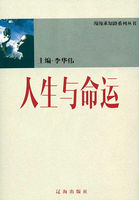Why would they have bound themselves, by a particular devotion, also sanctioned by the Pope, to have some of their sisterhood, night and day without intermission, in presence of the sacred host, to compensate, by their perpetual adorations towards that perpetual sacrifice, for the impiety of the heresy that aims at its annihilation? Tell me, fathers, if you can, why, of all the mysteries of our religion, they should have passed by those in which they believed, to fix upon that in which they believed not? and how they should have devoted themselves, so fully and entirely, to that mystery of our faith, if they took it, as the heretics do, for the mystery of iniquity? And what answer do you give to these clear evidences, embodied not in words only, but in actions; and not in some particular actions, but in the whole tenor of a life expressly dedicated to the adoration of Jesus Christ, dwelling on our altars? What answer, again, do you give to the books which you ascribe to Port-Royal, all of which are full of the most precise terms employed by the fathers and the councils to mark the essence of that mystery? It is at once ridiculous and disgusting to hear you replying to these as you have done throughout your libel.M.Arnauld, say you, talks very well about transubstantiation; but he understands, perhaps, only "a significative transubstantiation." True, he professes to believe in "the real presence";who can tell, however, but he means nothing more than "a true and real figure"? How now, fathers! whom, pray, will you not make pass for a Calvinist whenever you please, if you are to allowed the liberty of perverting the most canonical and sacred expressions by the wicked subtleties of your modern equivocations? Who ever thought of using any other terms than those in question, especially in simple discourses of devotion, where no controversies are handled? And yet the love and the reverence in which they hold this sacred mystery have induced them to give it such a prominence in all their writings that I defy you, fathers, with all your cunning, to detect in them either the least appearance of ambiguity, or the slightest correspondence with the sentiments of Geneva.Everybody knows, fathers, that the essence of the Genevan heresy consists, as it does according to your own showing, in their believing that Jesus Christ is not contained in this sacrament;that it is impossible he can be in many places at once; that he is, properly speaking, only in heaven, and that it is as there alone that he ought to be adored, and not on the altar; that the substance of the bread remains;that the body of Jesus Christ does not enter into the mouth or the stomach;that he can only be eaten by faith, and accordingly wicked men do not eat him at all; and that the mass is not a sacrifice, but an abomination.Let us now hear, then, in what way "Port-Royal is in concert with Geneva."In the writings of the former we read, to your confusion, the following statement: That "the flesh and blood of Jesus Christ are contained under the species of bread and wine"; that "the Holy of Holies is present in the sanctuary, and that there he ought to be adored"; that "Jesus Christ dwells in the sinners who communicate, by the real and veritable presence of his body in their stomach, although not by the presence of his Spirit in their hearts"; that "the dead ashes of the bodies of the saints derive their principal dignity from that seed of life which they retain from the touch of the immortal and vivifying flesh of Jesus Christ"; that "it is not owing to any natural power, but to the almighty power of God, to whom nothing is impossible, that the body of Jesus Christ is comprehended under the host, and under the smallest portion of every host"; that "the divine virtue is present to produce the effect which the words of consecration signify"; that "Jesus Christ, while be is lowered and hidden upon the altar, is, at the same time, elevated in his glory; that he subsists, of himself and by his own ordinary power, in divers places at the same time- in the midst of the Church triumphant, and in the midst of the Church militant and travelling"; that "the sacramental species remain suspended, and subsist extraordinarily, without being upheld by any subject; and that the body of Jesus Christ is also suspended under the species, and that it does not depend upon these, as substances depend upon accidents"; that "the substance of the bread is changed, the immutable accidents remaining the same"; that "Jesus Christ reposes in the eucharist with the same glory that he has in heaven"; that "his glorious humanity resides in the tabernacles of the Church, under the species of bread, which forms its visible covering; and that, knowing the grossness of our natures, he conducts us to the adoration of his divinity, which is present in all places, by the adoring of his humanity, which is present in a particular place"; that "we receive the body of Jesus Christ upon the tongue, which is sanctified by its divine touch"; "that it enters into the mouth of the priest"; that "although Jesus Christ has made himself accessible in the holy sacrament, by an act of his love and graciousness, he preserves, nevertheless, in that ordinance, his inaccessibility, as an inseparable condition of his divine nature;because, although the body alone and the blood alone are there, by virtue of the words- vi verborum, as the schoolmen say- his whole divinity may, notwithstanding, be there also, as well as his whole humanity, by a necessary conjunction." In fine, that "the eucharist is at the same time sacrament and sacrifice"; and that "although this sacrifice is a commemoration of that of the cross, yet there is this difference between them, that the sacrifice of the mass is offered for the Church only, and for the faithful in her communion; whereas that of the cross has been offered for all the world, as the Scripture testifies." I have quoted enough, fathers, to make it evident that there was never, perhaps, a more imprudent thing attempted than what you have done.But I will go a step farther, and make you pronounce this sentence against yourselves.For what do you require from a man, in order to remove all suspicion of his being in concert and correspondence with Geneva? "If M.Arnauld," says your Father Meynier, p.93, "had said that, in this adorable mystery, there is no substance of the bread under the species, but only the flesh and the blood of Jesus Christ, I should have confessed that he had declared himself absolutely against Geneva."Confess it, then, ye revilers! and make him a public apology.How often have you seen this declaration made in the passages I have just cited?
同类推荐
热门推荐
霸道总裁之我不当替身
她不过是想喝杯酒,宣泄孤独的情绪,却不想,被一顿爆吻。她只不过是有点小贪心,将他表弟送的所有玫瑰花瓣都用来沐浴,他却说,她是在招蜂引蝶。她从不认识他。可这个男人却偏偏认她为初恋女友。纵然,他是商业巨子,冷峻,傲气十足,多少女子绞尽脑汁与之共度鸾凤。为何?她对上他,却总是泪眼涟涟。人生与命运(漫漫求知路)
学会共处,不只是学习一种社会关系,它也意味着人和自然的和谐相入。从我国古代“天人合一”的思想传统到当代世界倡导的“环境保护”和“可持续发展”,无不指明了学会与自然“共处”的重要性。这种学习,像其他学习一样,也包括了知识、技能和态度、价值观念的习和和养成。知识经济的时代,人人需要终身学习。学什么?怎么学?学会求知、学会做事、学会共处、学会做人。从本质上来说,成人一生的发展模式和对待新事物与旧事物的兴趣模式都与三个月的孩子几乎相同。















